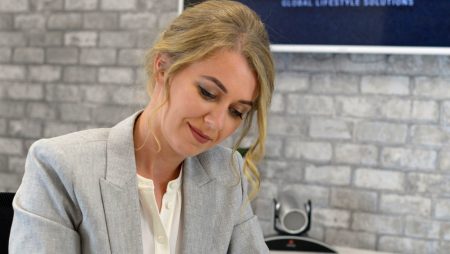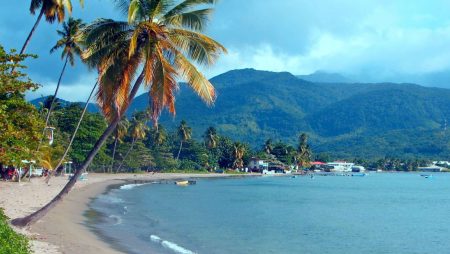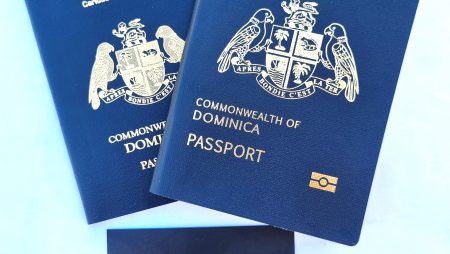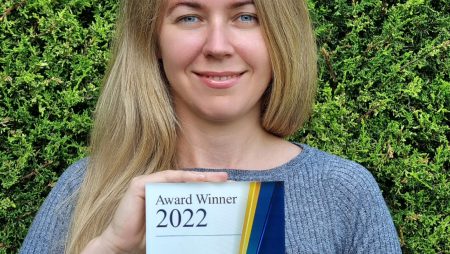
Victoria Vella’s Expert Article for the Magazine “Reputation.Moscow”: Denials of Citizenship and Residency by Investment

Second citizenship and residency by investment of different countries are in high demand among businessmen, top managers, and rentiers all around the world, because such programs allow applicants to obtain legal passports or residence permits in Europe quickly and easily. However, even if a person is wealthy, there still remains a risk of being denied citizenship or residency. In the article I explain why this happens and how to increase the chances of acquiring the coveted second passport, as well as recommend countries with the highest rates of application approval. You can read the article by clicking on the link.
From my experience working with citizenship and residency by investment programs for around 10 years, applicants are most often denied citizenship or residency by investment in the following situations:
- They have a criminal record or are involved in pending litigations in their home country;
- The source of their income has not proved to be legitimate;
- They have provided unreliable personal information, or falsity/concealment of information has been proved. For example, the name of an applicant was found on sanctions lists, or information not meeting the standards and requirements of the country came to light;
- They have outstanding denials of visa or residence permits to those countries, which are visa-free with a new passport;
- They have provided fake documents: fictitious income certificates, falsified employment contracts, etc.;
- They have failed a due diligence check and have not provided a reasonable explanation for the situation.
It is obvious that being honest is very important when submitting documents. But what to do in the latter case? What embarrassing information about you can be found on the Internet? I can assure you that although due diligence checks are thorough and individualised, the stamp “Denied” is not applied as soon as the first negative information found.
Note that immigration units all over the globe use databases such as World-Check to check candidates for citizenship and residency. Officials can also resort to services of private detective agencies that scan the entire background of a person. Based on the results of the check, an applicant can be denied a “golden visa” or second citizenship.
If officials find suspicious information about you, first thing they usually do is send you a request for an explanation. The sooner you respond, the better. And it is important to explain your position in detail and provide documents refuting the information found. Choosing the right immigration expert plays a major role, as a highly-qualified and experienced professional knows how to respond to the government’s requests properly without arousing additional questions and contributes to an approval of the application.
Reasons for citizenship or “golden visa” denials can be different, and foreseeing all factors on your own is complicated. One of the ways to prevent yourself from being denied residency or citizenship by investment is to contact a reliable company that will help you select the most suitable immigration program.Children of the main applicant or his / her spouse below 29 years old (if children are of legal age, they must be unmarried and financially dependent on the main applicant);
Countries with minimal risk of denial
Europe is one of the most sought-after and favourable destinations for obtaining residency or citizenship by investment. However, the European Union has repeatedly shown concern about the immigration programs because of possible money-laundering or corruption. At the moment, the European Commission is wary of citizenship by investment programs, since a person can become an EU citizen with all the rights and freedoms arising from this status. This is why due diligence checks are becoming more rigorous and the terms of applying for citizenship are getting stricter. This leads to higher risks of a denial.
At the same time, this increases the reliability of the programs. For example, Malta’s citizenship by investment program is the first and only officially approved by the European Commission. Malta remains one of the most popular countries for obtaining second citizenship, offering visa-free access to almost190 countries. Last autumn Malta’s Individual Investor Program (IIP) closed after reaching its cap of 1,800 applications.
In November 2020, Malta replaced it with a new citizenship by investment program. However, the conditions for participation have been tightened. An insufficient period of residence on the island can be a reason to deny citizenship: according to the program requirements, an eligible applicant has to have resided in Malta for one or three years before applying for citizenship.
Another citizenship by investment program is run by St Kitts and Nevis, a small island country in the Caribbean Sea that set the stage for the entire investment immigration industry back in 1984. The Kittitian passport opens a way to more than 150 countries. This is a huge benefit even in normal times, and during the pandemic when many borders are closed, it has become enormously in demand, enabling freedom of movement among countries legally. In the Caribbean, there are currently five citizenship by investment programs in operation: in St Kitts and Nevis, Dominica, Grenada, Antigua and Barbuda, and St Lucia. Moreover, similar programs are also offered by Vanuatu (Oceania), Montenegro, and Turkey. Passports of these countries provide their holders with a range of advantages such as the opportunity to travel visa-free to a number countries varying from 120 to 180, simplified entry to the US or Canada, an attractive tax regime. The minimum cost of participation in the citizenship by investment program in the Caribbean starts from $100,000.
Due diligence procedures of all these countries are very thorough. Nevertheless, speaking of the countries where due diligence procedures are currently a little bit less scrutinous, Vanuatu and Turkey can be named. Investors who would like to acquire coveted second citizenship with a lower denial probability should pay attention to these two countries.
Reasons for denial of citizenship
Let’s consider possible reasons for citizenship denial using the example of Malta’s new citizenship by investment program. These reasons are indicative, because the Maltese government developed the rules of its latest immigration program (the newest of the existing ones) based on the global experience and the entire 37-year history of similar programs. The same rules apply to other citizenship by investment programs. An applicant can be denied citizenship if:
- They or any of their dependands are or were indicted of an offence before an International Criminal Court or have been arraigned at any time before an International Criminal Court;
- They or any of their dependants are listed with the Interpol or Europol;
- They or any of their dependants are an actual or potential threat to national security, public policy or public health of Malta;
- They or any of their dependants have been charged with or found guilty of crimes, related to terrorism, money laundering, etc.;
- They or any of their dependants have been charged or found guilty of criminal offences including paedophilia, rape, defilement of minors; etc.;
- They or any of their dependants have been found guilty of, or at any time during the processing of the application, have been interrogated or are suspected of, or have criminal charges brought against them for any criminal offence;
- They or any of their dependants are politically exposed person and have the opportunity to abuse their official position for illicit enrichment;
- They or any of their dependants are, or are likely to be, involved in any activity which may cause disrepute to the Republic of Malta;
- They or any of their dependants have been denied a visa to a country with whom Malta has visa-free travel arrangements and have not subsequently obtained a visa from that same country;
- They or any of their dependants are named or listed in international sanctions applying restrictive measures on them.
The law implies that during the first five years after citizenship granting, the Community Malta Agency may request the applicant to provide additional documents and even to undergo an interview. I emphasise that even after the cherished passport has been obtained, it still can be revoked if any of the above reasons start applying. It is very important to obey the law.
How to prevent yourself from being denied citizenship, residency, or permanent residency
I recommend observing the following universal steps:
- Be mindful when choosing a company to handle your citizenship application. Having qualified lawyers with years of experience working with citizenship and residency programs handling your case is a great advantage.
- Make sure that the company you chose implements an internal due diligence check and informs you about possible risks for denial of residency or citizenship in advance.
- Provide truthful and detailed information. If you think that any facts in your background might affect the decision on your application in a negative way, reveal them to the immigration company. With proper document planning, in most cases, you can avoid not only denial but also questions on your application from the citizenship or residency unit.



